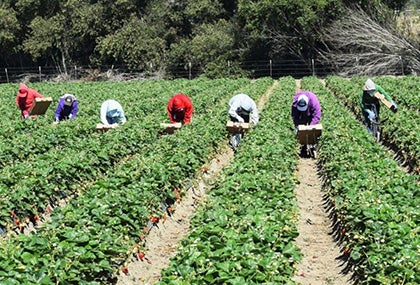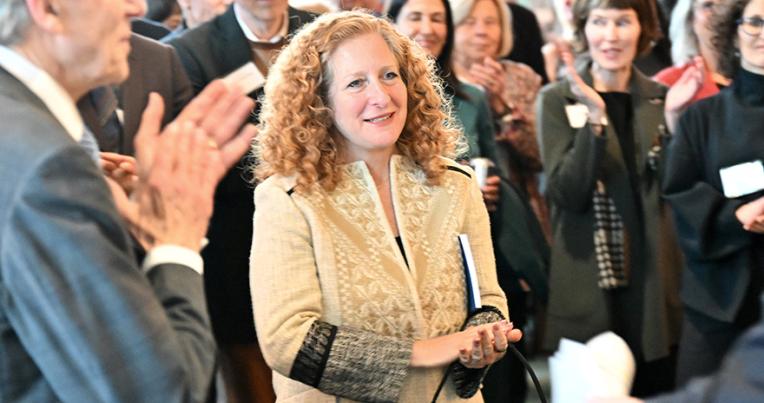Resnick Center Launches Guide on COVID-19 and Food Law and Policy
UCLA Law Magazine | Fall 2020 | Volume 43

The Resnick Center for Food Law and Policy at UCLA School of Law has compiled an expansive online resource that tracks issues at the intersection of the novel coronavirus pandemic and food law and policy. “Food is of paramount concern during the COVID-19 crisis — we’re all eaters — and this resource will help scholars, lawyers and other interested people navigate this ever-changing aspect of our lives today,” says Resnick Center executive director Michael Roberts, who will maintain and continue to expand the guide along with its primary developers, Resnick Center assistant director Diana Winters and law librarian Jennifer Lentz.
The guide, “COVID-19 and Food Law,” is a resource for scholars, researchers, officials, lawyers and other members of the public who seek information on matters of heightened interest during the public health crisis, including food security and safety, supply chain maintenance and the safety of farm or food-service workers.
It includes links to food-related official guidance from state, federal, global and private agencies; a list of proposed and enacted state and federal legislation; and selected articles that focus on pandemic-related issues including food and the economy, diet and nutrition, feeding low-income children, and environmental impact. It also offers links to open-access repositories of media reports related to COVID-19 and food law and policy. Over time, the guide will include legal scholarship detailing the impact of COVID-19 on food law and policy, and it will help galvanize thinking around how the law can help build resiliency in food systems if major disruptions akin to the COVID-19 pandemic occur in the future.
Using the material in the guide as a resource, the Resnick Center has developed a proposal to publish a white paper that will recommend law and governance strategies for securing a resilient food supply chain against future disruptions. The white paper will first identify key systemic and structural impediments to resiliency and then make recommendations in the following areas of concentration: innovation and technology; structure; best governance practices; and leverage, which looks at how governing agencies and the food industry can leverage relationships in the food supply chain to shore up resiliency in the private sector. An overarching focus of the proposed white paper will be how to best meet the needs of those who are most vulnerable and susceptible to hunger, suffering and food injustice.
The white paper would build on several recent global initiatives by the Resnick Center seeking to improve governing institutions, including a partnership with the United Nations’ Food and Agriculture Organization (FAO) that is generating a major report on how international law and national governments can eradicate food fraud. The Resnick Center has also worked directly with officials in South Korea on optimal approaches to organizing its food safety regime and with government and industry leaders in China on extensive training programs on food governance. Finally, the Resnick Center has published extensively and is editing a Research Handbook on International Food Law (Edward Elgar) that addresses governance concepts.
